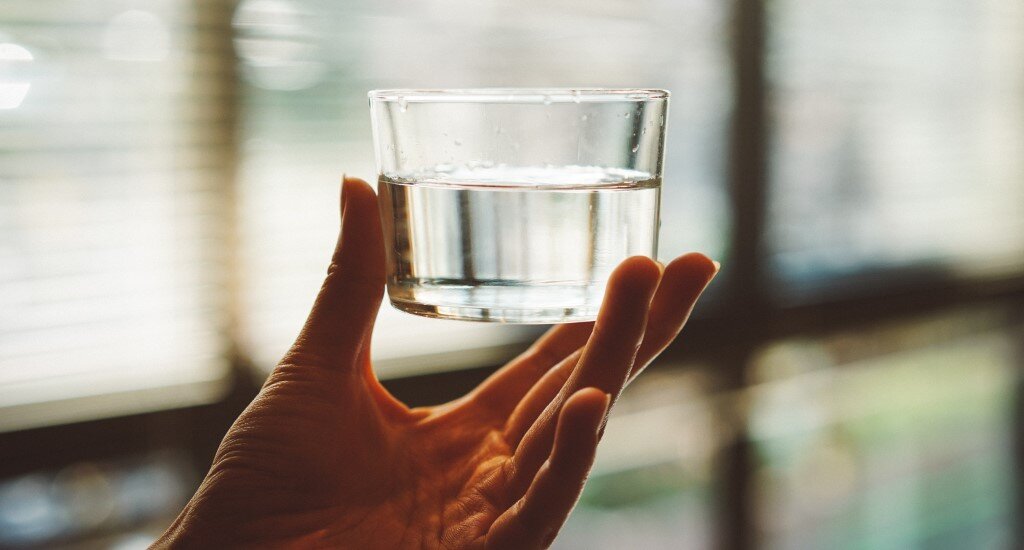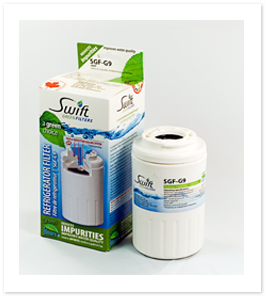The best water treatment system for your home will depend on your particular situation. If you live in an area that has hard water, then you will want to have a system that can soften your water. If you have a private well, then you may need a water treatment system that can remove harmful contaminants from your water.
Here is a list of the most popular water treatment systems in use. (click on each type to learn more about what they are and how they work).
It is always a good idea to talk to a professional to find out which water treatment system is right for your unique home and situation.
Discover which water treatment system is right for you
Water Treatment System Options
1. Water Purifiers - Reverse Osmosis
Remove impurities without added chemicals:
Reverse Osmosis is a great water treatment system because it removes several dissolved substances while still giving you great-tasting water. It also doesn't add any additional chemicals to your water. Instead, it separates the unwanted contaminants from your incoming water.
Reverse osmosis is a water purifying process that forces water through a semi-permeable membrane that has very small holes or "pores”.
Clean water passes through the membrane and impurities that are too big to pass are left behind and flushed away. Watch the reverse osmosis process in action in the following video.
Reverse Osmosis is a water treatment system that doesn’t use chemical additives
The Duro Reverse Osmosis System, available at WaterSmart, features pre and post-carbon block filtration processes. The carbon filter acts as a complementary measure to block dangerous chemicals like pesticides, herbicides and chlorine, which are small enough to pass through the filter.
Reverse osmosis filter systems can remove up to 99.99% of the most harmful contaminants found in your drinking water making it the best water purifier for home use. High-quality reverse osmosis systems can remove dangerous contaminants including:
2. Water Softeners
Make your hard water soft:
If you live in an area where there is hard water, like the Waterloo region which has some of the hardest water in Canada, then you probably want to invest in a water softener. Hard water is a term used to describe water that has high concentrations of calcium and magnesium minerals.
Water Softeners use a process called ion exchange to remove minerals such as calcium and magnesium from hard water to make it soft.
Hard water issues:
Hard water can cause some nasty issues in your home such as:
Damage to your clothing, causing them to wear out faster
Scale buildup in your washing machine, dishwasher, water heater and other appliances that use water that can damage them and reduce their performance
Difficulties getting dishes or laundry clean
Your skin and hair feel dry
Stains in your sink, toilet, shower and bathtub that are unsightly and difficult to remove
Plumbing pipe damage due to mineral build-up inside your pipes
Having to use more soap or detergent in order to get it to lather up. Soft water lathers up much easier than hard water.
Hard water build up can damage appliances that use hot water
3. Dechlorinators
Remove added chlorine in your tap water:
A dechlorinator will remove the chlorine that has been added to your tap water. Many municipalities add chlorine to their water supply to help make it safe to drink. However, if you don't like the taste or smell of the chlorine in your water, then a dechlorinator may be a good option for you.
A dechlorinator only removes chlorine from your water. If you have hard water and want to soften it, you will also need to install a water softener. There are water softeners that have built-in dechlorinators, however, you will be better off in the long run if you install separate units.
Combined dechlorinators and water softener units don't usually last as long as separate units so even though your initial purchase costs may be higher, your overall costs will be less.
A dechlorinator will remove chlorine from your water
4. Fridge Filters
Many refrigerators come with a water dispensing unit in their door that will also filter your tap water. These filters have activated carbon in them so that when your tap water is forced through the filter, the carbon works like a magnet to attract certain contaminants.
These contaminants stick to the activated carbon inside the filter effectively removing them from the water that you get from your fridge dispenser.
Fridge filters can remove a limited number of contaminants such as:
chlorine
volatile organic chemicals
radon
They can't however remove the wide range of inorganic contaminants and heavy metals that a reverse osmosis system can. You also have to remember that once your fridge filter has removed a certain amount of contaminants, it is no longer effective. It will need to be replaced periodically, usually about once a month.
Fridge filters need to be replaced on a regular basis to be effective
5. Large Bottled Water Service
Purchase water that is already treated:
Even though purchasing large bottles of water isn't technically a water treatment system in itself, it is a relatively inexpensive and convenient way for you to enjoy purified water. You are just paying to have someone else do the purifying for you.
Invest in your own bottles:
If you prefer to purchase water that has already been purified, then using refillable large bottles of filtered water is a much more economical and environmentally friendly alternative to purchasing individual bottled water. You can purchase your own large bottles and refill them as you need them.
Relatively inexpensive:
It will cost you only about 20 cents per litre. Some water companies will also provide prepaid water plans that can save you even more. The problem is that you do have to get your bottles refilled, however, if there is a convenient location near you, then it can just become one of your weekly or monthly errands.
You can purchase large bottled water at a convenient location
WHY CHOOSE WATERSMART FOR THE BEST WATER Treatment system?
WaterSmart has been serving the Waterloo region including, Kitchener, Cambridge, Guelph, Brantford, and surrounding areas since 1994. We can help you select the best water treatment system for your particular needs.
We are committed to helping you improve the quality of your home's water. We live and work in the Kitchener-Waterloo region so we understand the hard water challenges of this area. We know how to program your water softener for maximum efficiency and are familiar with the types of water softener repairs that you might need.
Contact WaterSmart today to book an appointment.
“What a great experience!! I did a search on the internet, called regarding the price of a water softener and the next day it was installed and we had soft water again. Paul removed the old softener, installed and setup the new one and was out in just over an hour. He also noted that the grounding of water pipe was not done by previous installer and he corrected that as well. Cost was the same as softener that was installed 14 years ago - I am impressed.”









